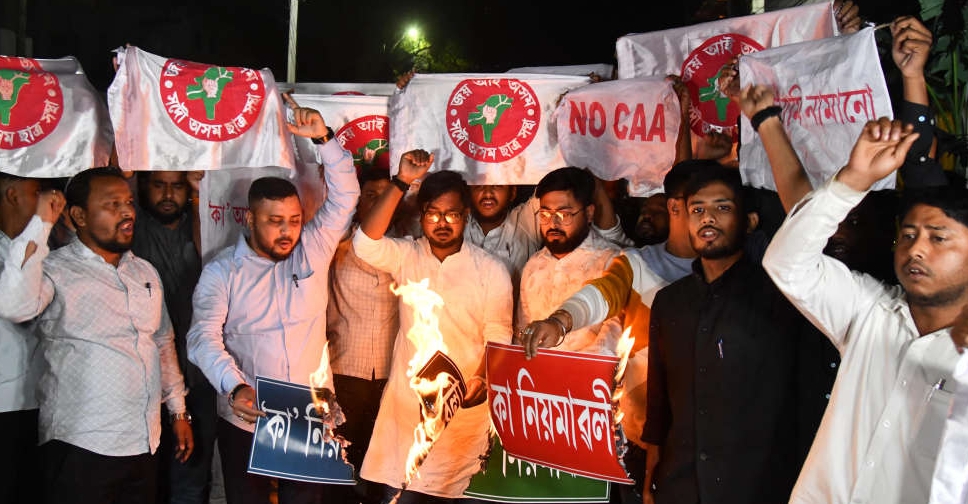
Sporadic protests have erupted in India against a controversial citizenship law after Prime Minister Narendra Modi's government implemented the legislation just days before a general election is announced.
Protests broke out in the eastern state of Assam and the southern state of Tamil Nadu late on Monday after the implementation was announced, authorities said. There were no reports of damage or any clashes with security forces.
Modi's ruling Bharatiya Janata Party (BJP) government framed rules on Monday to implement the Citizenship Amendment Act (CAA), making it easy for non-Muslim refugees from three Muslim-majority South Asian nations to get Indian citizenship.
The enactment of the law in 2019 had led to massive protests and sectarian violence in which scores were killed, forcing the government to delay its implementation.
In Chennai, Tamil Nadu's capital, protesters took out a candle light march on Monday and shouted slogans against the law.
In Assam, protesters burnt copies of the law and shouted slogans on Monday night, and local opposition parties have called for a state-wide strike on Tuesday.
Many oppose the CAA in Assam as they fear it can increase migration from neighbouring Bangladesh, a longstanding flashpoint that has polarised the state for decades.
The Communist Party of India (Marxist), which rules the southern state of Kerala, has also called for state-wide protests on Tuesday.
"Kerala will stand united in opposing this communal and divisive law," Chief Minister Pinarayi Vijayan said in a post on X, among several opposition chief ministers who have criticised implementation of CAA.
Authorities in the national capital New Delhi, where the protests were centred in 2019, were on alert for any violence, prohibiting unlawful gatherings and increasing police presence in sensitive areas.
CAA grants Indian nationality to Hindus, Parsis, Sikhs, Buddhists, Jains and Christians who fled to India due to religious persecution from Afghanistan, Bangladesh and Pakistan before December 31, 2014.
Rights activists say the law, combined with a proposed national register of citizens, can discriminate against India's 200 million Muslims. Some fear the government might remove the citizenship of Muslims without documents in some border states.
The government denies it is anti-Muslim and says the law is needed to help minorities facing persecution in other nations.
It says the law is meant to grant citizenship, not take it away from anyone, and has called the protests politically motivated and due to misconceptions that have been spread.
 UK inquiry finds 'chilling' cover-up of infected blood scandal
UK inquiry finds 'chilling' cover-up of infected blood scandal
 Iranian President Raisi killed in helicopter accident, state media says
Iranian President Raisi killed in helicopter accident, state media says
 ICC prosecutor seeks arrest warrants for Israeli, Hamas leaders
ICC prosecutor seeks arrest warrants for Israeli, Hamas leaders
 Assange given permission to appeal against US extradition
Assange given permission to appeal against US extradition
 Israel intends to broaden Rafah sweep, Defence Minister tells US
Israel intends to broaden Rafah sweep, Defence Minister tells US




